resources for your journey with jesus |
 As a SoCal weather wimp, I’ve felt perpetually chilled for weeks as our nights have dipped down into the low 40’s. So, when the sun came out after a stormy interlude last week, I took my morning coffee break to sit on a rock with the local lizards and soak up those rays. It felt glorious, until I glanced around and saw the incredible weed infestation that had sprung up overnight (whoever told us that rock gardens with indigenous plants are low maintenance was sorely uninformed!) Weeds are amazing, when you think about it. They shoot up unbidden, having powered through layers of protective plastic, rocks and even boulders, and then they spread profusely, wreaking havoc like kamikaze warriors. I have never been able to figure out why our regular plants demand such care--fertilizing, balancing the soil, watering enough, but not too much—while weeds seem to flourish with no help from us at all.  Getting rid of the weeds in my soul feels like a never-ending task. Cynicism or judgement or self-pity or pride or a hundred other sins can spring up unbidden and before I know it, that garden within where Jesus has made his home, is a mess. That reminded me of one of my favorite spiritual authors—Teresa of Avila, a 16th century saint, who shared amazing metaphors for our spiritual journey. For example, she describes our souls as gardens that can be very barren and “full of abominable weeds” that Jesus pulls up so he can plant good seeds. As we care for these seeds, our souls “bud and flower and give forth a most pleasant fragrance to provide refreshment for this Lord of ours.” Something about that mystery—that Jesus comes to enjoy the garden of my soul, makes me long to do whatever I can to make it a lovely experience for him.  Getting rid of the weeds in my soul feels like a never-ending task. Cynicism or judgement or self-pity or pride or anxiety or a hundred other sins can spring up unbidden and before I know it, that garden within where Jesus has made his home, is a mess. This is one reason Lent is such a special season for me. It offers a time to journey with Jesus through his suffering, opening my soul to his tender care and boundless love, as he rips out the weeds that threaten to choke the flora of grace and virtue that he’s planted there. In the shadow of the cross, Jesus himself comes to water the dry places, till the hardened soil, and turn the budding plants into a profusion of beauty whose fragrance brings him joy. Nothing drives me more than the unfathomable privilege of bringing pleasure to my Lord. I hope you'll join me in a soul-gardening venture this Lent!
RESOURCES
5 Comments
I woke up with a tension headache again this morning. While I’d like to think I can manage stress at this point in my life, the knots down my neck and across my shoulders are telling a different story, one forged through the twists and turns of a global pandemic that we all thought would be a thing of the past by now. This week San Diego went into lockdown again, forcing Joe and me to pare down Christmas until it feels like the Grinch himself is calling the shots. For decades we have hosted our family Christmas Eve celebration, replete with a panorama of Danish traditions my mom brought into our home as a young bride.
Letting my friends and family know we wouldn’t be hosting this year has been excruciating for me—not only because of my own sense of loss, but the disappointment I knew many of them would feel. I didn’t realize how much this weighed on me until this morning as I read these words from the prophet Isaiah: “And the government shall be on his shoulders.” In this prophecy of Christ that was penned hundreds of years before he came, the Hebrew word for government suggests wrestling until one wins the power. In that agrarian society, where most people survived through manual labor, the image of that fight being hefted like a load onto one’s back, spoke volumes. As I massaged my tense shoulders, I pondered how Jesus came to contend in my place, to wrestle to the point of death so that he could lift the burdens of brokenness and disappointment and sadness and sin from my shoulders. 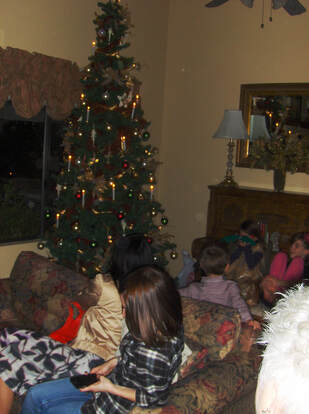 Tears began to flow as I envisioned just that—all the weight I have been carrying for days, sliding off of me and onto his shoulders—and as I did, the headache gradually disappeared. I am not under the illusion that I’ll be stress-free from now on, or that headache won’t come back, but today, in this moment, my heart is captivated by the eternal beauty of a Savior who came to earth to carry our burdens and fight for our souls. COVID restrictions have lost their capacity to cancel my Christmas joy in light of this. 12 DAYS OF CHRISTMAS DEVOTIONALS CLICK HERE Joe started putting up lights a week before Thanksgiving and hasn’t stopped yet—we’ve never had such a display! It’s not yet December, but this morning I am sitting here looking at the stockings hanging from our mantle, because the truth is, we’ve just needed a little Christmas.
everything in the stock market crash of 1929, she called for her household to begin celebrating Christmas immediately; to “haul out the holly, put up the tree before my spirit falls again.” While we cannot compare our own dark chapter in history with the Great Depression, this global pandemic that has claimed almost 1.5 million lives to date, has cast its shadow over every aspect of our daily existence. So, if you NEED A LITTLE CHRISTMAS, RIGHT THIS VERY MINUTE, here are some resources to get you started: MAVERICK CITY CHRISTMAS: The best Christmas worship experience I've had-great album! Amazon playlist: Click here Youtube sample: Click here Itunes album: Click here 12 DAYS OF CHRISTMAS DEVOTIONALS: Experience Jesus’ birth through the stories of those who were there. A great way to focus on those final days before Christmas: Click here. THE CHOSEN SPECIAL CHRISTMAS EPISODE: Expect tears and be deeply moved in this 24 minute portrayal of Christ's birth: Click here. And if you just need to sing along, join the iconic Johnny Mathis as he sings
NEED A LITTLE CHRISTMAS: Click here My brother Chris took his last breath 15 days ago in a skilled nursing facility and by some shockwave of sheer grace, we were granted bedside access for two full weeks prior as he slipped into semi-consciousness. Grief, as anyone who has lost a loved one knows, is no respecter of persons or time. It can go underground and then come crashing in--a rogue wave, tossing you around like a rag doll in its turbulence. This happened to me this morning as I was reflecting on my Scripture reading. So then, those who suffer according to God’s will should commit themselves to their faithful Creator and continue to do good. 1 Peter 4:19 Theological disputes about God’s sovereignty and sickness aside, I watched my brother suffer terribly for almost three years after a stroke paralyzed and partially blinded him. In his better moments, he told me he was certain God had him in that place for a purpose, and in his final days, as nurses, doctors, aides, therapists and fellow patients streamed through his room to say goodbye, I understood the power of those four words, continue to do good. Chris always loved people, but the stroke left him with an unusual brain condition dubbed la belle indifference—the beautiful indifference—that uniquely put this on display. (You can read the story about that here). After the stroke, Chris was brilliant, fun, savvy and sane as ever, with one exception—he could not connect the dots from the present to the future. Like the proverbial Groundhog Day, he woke up most mornings with the sense that he had landed temporarily in the hospital and would get out soon. So, through multiple illnesses, surgeries and ER visits, while enduring unbearable pain month after month, it seems to me that Chris just continued to do good--connecting personally with the lives of every person who walked through his door, insisting regularly that I take Joe out to dinner on him, sharing his snacks with the staff, and ordering birthday gifts on Amazon for me to give out to the family he loved. Even in his semi-conscious state at the end, he labored to squeeze people’s hands or blink three times for I love you. So as I grieved and read 1 Peter again this morning, I felt a reset in my soul, a path forward that I think I can follow through the landmines of pandemics and presidential elections and civil unrest and upheaval like I've not seen in my entire life. Continue to do good. I felt a reset in my soul, a path forward that I can easily follow through the landmines of pandemics and presidential elections and civil unrest and upheaval like never seen in my entire life. Continue to do good. 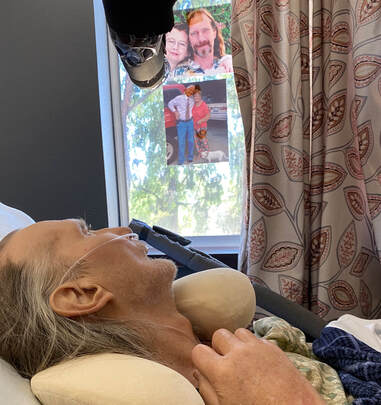 In his final days In his final days Such a simple mandate that flows through the pages of Scriptures: Trust in the Lord and do good…Psalm 37:3 Love your enemies, do good to those who hate you…Luke 6:27 Jesus of Nazareth...went around doing good…Acts 10:38 Let us not become weary in doing good…Galatians 6:9 Therefore, as we have opportunity, let us do good to all people…Galatians 6:10 Command them to do good, to be rich in good deeds…1 Timothy 6:18 Remind the people to be …ready to do whatever is good…Titus 3:1 And do not forget to do good and to share with others…Hebrews 13:16 The reset God had for me this morning was to remember how he treasures every little act of goodness I might extend—in my home, my neighborhood, on the road, in the grocery store or gas station or online. In times when it feels like everything is being shaken and uncertainty is the new normal, this lovely little mandate will anchor my soul and correct my course--continue to do good. In times when it feels like everything is being shaken and uncertainty is the new normal, this lovely little mandate will anchor my soul and correct my course--continue to do good. Chris came out of his semi-conscious stupor for a few days at the end, laboring to mouth words or raise his hand or turn his head our way. The last thing he said to me in his garbled, toothless whisper was “I sure do love you.” Like a soothing balm, that moment and the sheer exertion of strength it took for him to speak, has comforted me through the grief. It was his final act of goodness toward me, and one I deeply treasure. Chris’s final years were brutal, and ones I would never wish on anyone. But from him I learned the beauty of that simple command: Continue to do good. It was just the reset I needed today.  As we celebrated our nation's Independence Day , I couldn't help but think of the thousands of times I stood by my desk with hand over heart and pledged allegiance to the flag of the United States of America (is this still a thing?). The final sentence "with liberty and justice for all" is both beautiful and unsettling for me right now. I have been working on a short series of devotionals designed to explore the Biblical view of justice since George Floyd's life was taken from him in a terrible and very public act of injustice. To be honest, I feel like I barely understand the scope of God's passion on this issue. what do you know about biblical justice?Just for fun, click here to take a 6-question quiz about Biblical justice--you might be surprised! This series is five devotionals, each designed to last the length of time that George Floyd was held down by a police officer's knee as his life breath ebbed away. There is nothing political about them--just a few thoughts and Scriptures that lead you on your own journey to: Read, Reflect, Repent, Respond and Rest in silence. CLICK BELOW
|
Tricia McCary RhodesAuthor of 7 books and pastor of Global Leadership Development at All Peoples Church in San Diego, Tricia specializes in helping others experience God’s presence through practicing soul-care. Archives
February 2024
|

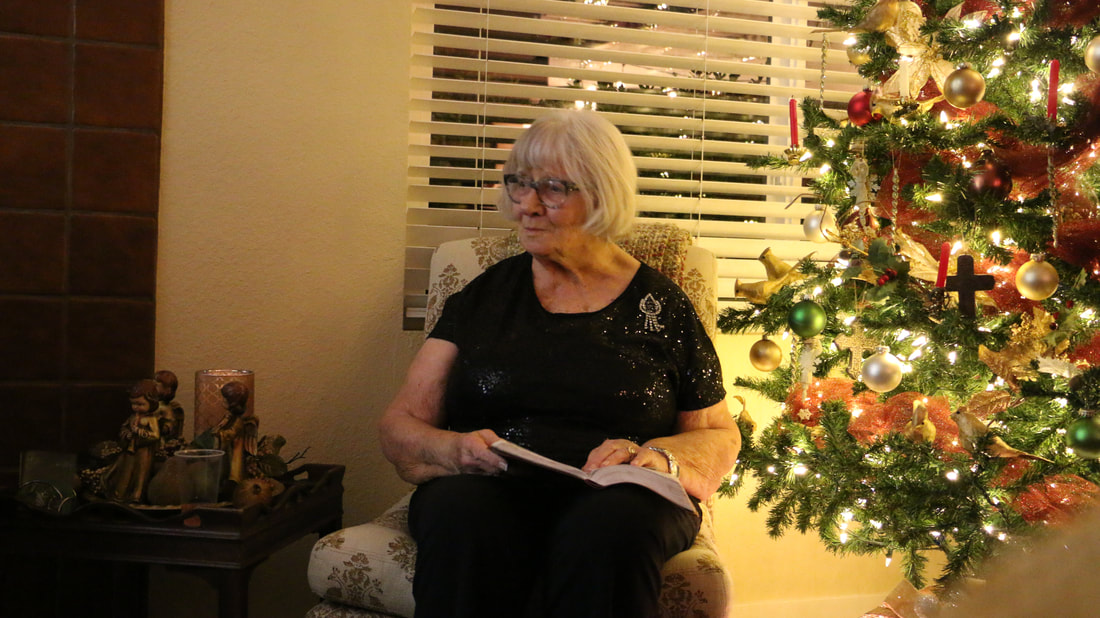


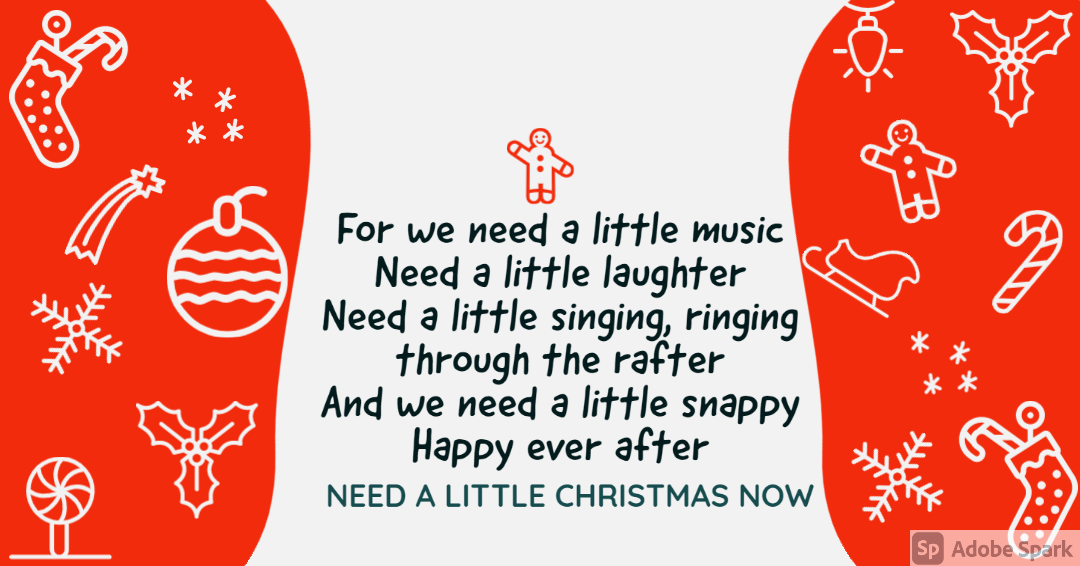
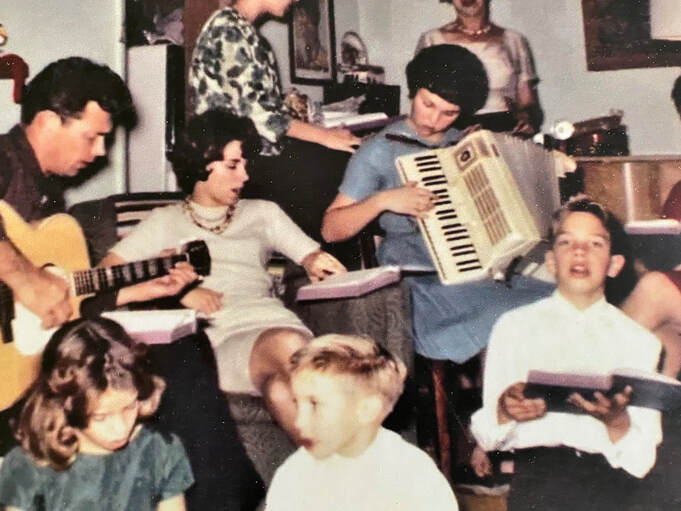
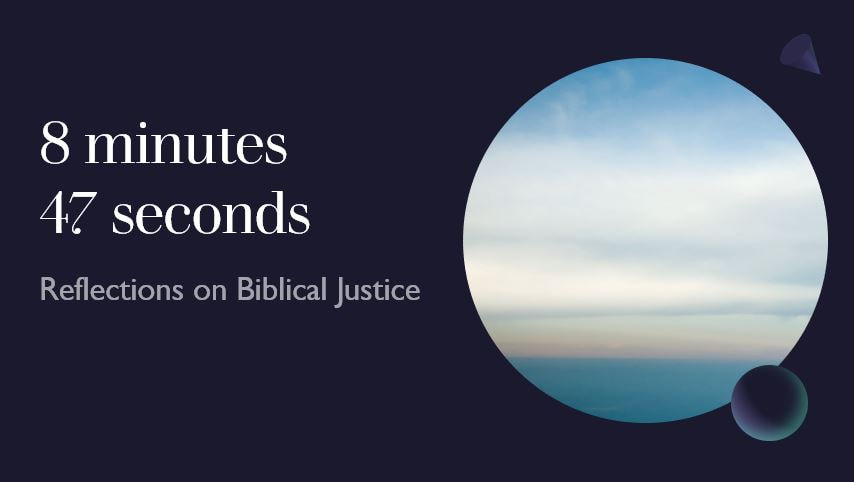
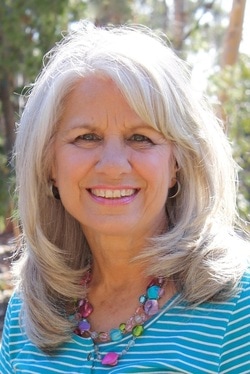
 RSS Feed
RSS Feed